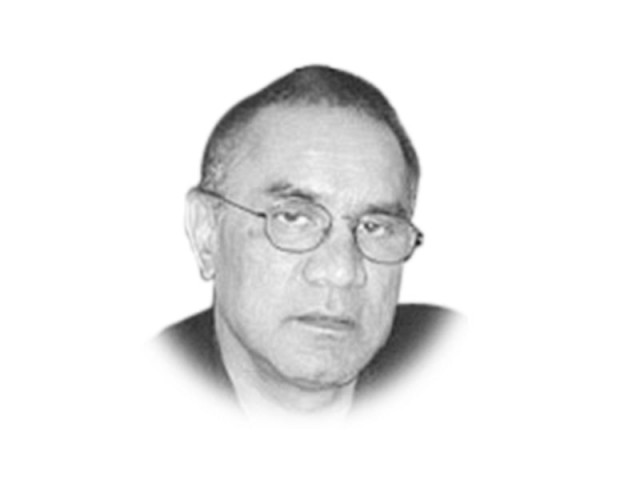Even the ashes blown away
There does not exist a single historian under the age of 80 now in Pakistan who can read Sanskrit.

The writer has served as faculty member at Brown University, University of Pennsylvania, LUMS, and is currently serving as Professor and Advisor to the Social Sciences and Liberal Arts Program at the Institute of Business Administration, Karachi
One does note that student enrollments in the Humanities are declining in many countries of the world including the US. But the dynamics of this phenomenon have their own peculiar features in Pakistan; and compared to the industrialised countries the consequences are, as far as I have understood, way more serious. To begin with, the decline here is in fact an educational policy target that was to be achieved. Thus, under Pakistan’s official Educational Policy of 1972-80, ‘engineering and technology’ were given the lion’s share of funding and attention. But what ought to be carved in our academic consciousness is that the policy at the same time spoke of discouraging the study of the Humanities.
This state of crisis has multiple faces. With three generations thrown into applied/vocational fields, and the killing of languages, the Pakistani society has been barred from an access to its primary textual sources. What is the result? Pakistanis cannot explain themselves. They have no knowhow any more to challenge the received narratives, not even to detect egregious factual errors in these narratives, errors that often appear to have been deliberately introduced, left unattended for so long now that they have hardened unyieldingly over time.
Here, there lives this ‘educated’ community of people that thinks in terms of forced conceptual categories, a people who have been, as a matter of state policy, deprived of the critical sight even to discern if their historical and cultural peculiarities admit of these categories. They have neither the language training nor the interest any more to examine their own intellectual legacy. There are literally towering heaps of Persian and Arabic manuscripts lying unread in various libraries of Pakistan as well as elsewhere all over the world — and what of Persian and Arabic manuscripts, Pakistanis typically do not even have the competence now to read printed books in Urdu.
One despairs: colonialism seems to have forever dislocated the Pakistanis epistemologically; they continue to live under conceptual coercion. True to its vision, we note with awe, the HEC has suppressed the Humanities effectively while nourishing ‘science and technology’. As I had pointed out at the very outset, this is not a scientific but a scientistic vision; it embodies a malady called scientism. What is scientism as opposed to science? It is a malady that has three types of interrelated essential symptoms: logical, epistemological and political. Logically, scientism presupposes that all disciplines of human knowledge, when sufficiently purified and developed, will reduce to the ‘hard’ sciences, such as physics or biology. This reductionism thereby denies any logical independence to the humanities. The second type of symptom of scientism is related to the first — it creates an epistemological hierarchy wherein the ‘hard’ sciences are found at the highest rungs and humanistic studies somewhere at the lowest. An art critic or a historian or a sociologist must emulate and strive to approximate as closely as possible biologists and physicists and astronomers — but not vice versa.
Then, there is the politics of scientism. It is this politics that leads to an obfuscation of the crucial distinction between science and technology. One far-reaching consequence of this politics is the elevated status given to those identified as ‘scientists’ — those who are, in fact, commercial industry-oriented applied scientists or, to put it bluntly, high order technicians. The cultural ecocide has manifested itself in massive casualties. There does not exist a single historian under the age of 80 now in Pakistan who can read Sanskrit — Sanskrit, perhaps is too much to ask for: in the country’s top institutions, those who teach Sufism do not read Persian and those whose specialty is the Pakistan Movement are smug with conversational Urdu. I have already stated the agonising fact about Sanskrit teaching — it was discontinued at Karachi University, a very large public institution of Pakistan’s metropolis. Given this, I wonder if there are any academics who talk about South Asia at this university who are aware what material exits in Sanskrit that might decisively add to what they know, or render problematic what they take for granted: nearly all Pakistani South Asianists build their edifice on the grounds of secondary literature written in English, literature that often does not even include translated primary sources.
Finally let me say a word about the pathological aspect of the crisis. Parents coerce their children to study ‘applied’ fields, such as accountancy, computer technology, or auto engineering. These kids, then, abhor what they do. So what do we get? A massive body of alienated youngsters, so many of them, terrorised by the corporate culture in which they were thrown against their wishes, while manifestly their inner being had a different thrust.
Note: This article is an edited excerpt from a paper presented at the Global Humanities Center of Columbia University
Published in The Express Tribune, April 25th, 2014.
Like Opinion & Editorial on Facebook, follow @ETOpEd on Twitter to receive all updates on all our daily pieces.















COMMENTS
Comments are moderated and generally will be posted if they are on-topic and not abusive.
For more information, please see our Comments FAQ